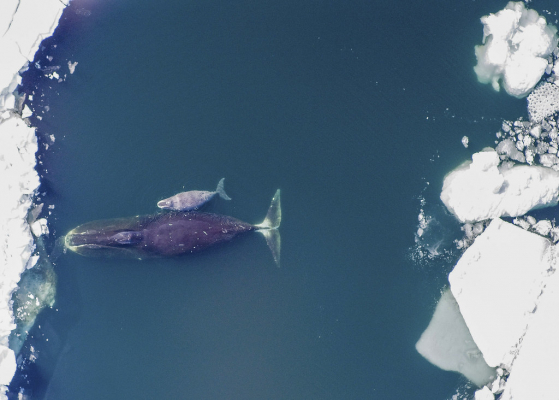In December, the Scientific Committee held the fifth in a series of workshops on climate change. An expert group gathered virtually to review the latest scientific research and assess both observed and predicted effects of climate change on cetaceans, including on their prey and habitats.
When the IWC first started to consider climate change, the availability of key information and predictive power were both limited. The situation has changed dramatically and the group received a report on the latest results from the Intergovernmental Panel on Climate Change which gave a stark assessment of the current situation.
The IWC’s knowledge of cetacean biology, and ability to model population trends are also much improved. Research now shows strong evidence of distributional shifts in some species, which are likely to be the consequence of the changing climate. Whilst this may suggest some ability to adapt, the extent is unknown and may be forcing cetaceans into new waters containing new threats, for example moving into shipping lanes or areas of concentrated fishing activity. In related work, the IWC Scientific Committee of the IWC is also working to explore the ecosystems services that whales provide, including how they may trap and store carbon, and help in the distribution of nutrients.
Last December's workshop agreed a series of recommendations including a prioritisation of future research on regions experiencing intense climate change impacts, and which are also key cetacean habitats. The group also stressed the importance of sharing information and making best use of available resources, including through partnerships and collaboration, and improving methods to utilise results from detailed small-scale studies to make wider inferences.
The workshop report is now available and will be presented to the Scientific Committee at its annual meeting in April-May.

